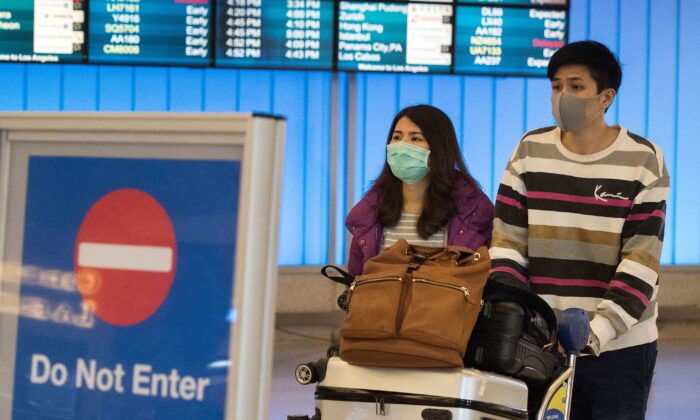EU Nations Can Restrict Vendors Under New 5G Guidelines, Huawei at Risk
The World Health Organization (WHO) announced that the mystery viral illness that has sickened hundreds of people in China and left more than a dozen dead is not yet a global health emergency.
“Make no mistake. This is an emergency in China, but it has not yet become a global health emergency,” said Dr. Tedros Adhanom Ghebreyesus, the head of WHO, in a press conference Thursday. “I am not declaring a public health emergency of international concern today,” he added.
In all, about 584 cases have been reported to the international health agency, including 17 deaths. Most of them are inside China, but several have been reported in Japan, South Korea, Thailand, Singapore, Vietnam, and the United States, he said.
Other alleged cases of coronavirus—such as the ones reported in the United Kingdom, Brazil, or Mexico—are still being investigated, Ghebreyesus remarked.
Those who have died from the virus, meanwhile, have had underlying health issues, he said, such as “hypertension, diabetes or cardiovascular disease that weakened their immune systems.”
Ghebreyesus issued a word of caution: “There is still a lot we don’t know. We don’t know the source of this virus, we don’t understand how easily it spreads & we don’t fully understand its clinical features or severity.” What’s more, “It is likely that we will see more cases in other parts of China and other countries,” he told reporters.
“We are completely committed to ending this outbreak as soon as possible,” he said.
The WHO last declared a global health emergency for an infectious disease in 2019 following an outbreak of Ebola in eastern Congo, which killed thousands of people. The agency declared global health emergencies for the Zika virus in 2016, the Ebola and polio outbreaks in 2014, and the 2009 swine flu.
Chinese regime authorities on Thursday placed quarantines on three cities in an attempt to reduce the outbreak of the virus, putting nearly 20 million people on lockdown.
The cities of Wuhan, nearby Huanggang, and Ezhou are under quarantine. All forms public transportation are closed and airports are shut down.
The government of Wuhan said people shouldn’t leave “unless there is a special reason.”
“Airports and train stations that can be used to leave the city will be temporarily closed. The closures will continue until further announcement,” the government stated.
At the same time, the U.S. State Department advised would-be Wuhan travelers to exercise caution. Along with the Centers for Disease Control and Prevention, the agency called on Americans to avoid nonessential travel to Wuhan after Chinese officials closed down transportation in and out of the city.
In a travel advisory posted on Thursday, anyone who traveled to Wuhan in recent days and feels sick should seek medical care immediately. It also called on people to call ahead to the doctor’s office or emergency room to tell them about their symptoms and where they had traveled.
The same alert also warned travelers that the Chinese Communist Party could use the virus outbreak as a reason to crack down on dissent and detain people indefinitely.
This article is from the Internet:WHO: Chinese Coronavirus Not yet a Global Health Emergency
Some Kenyans Say Chinese-Built Railway Leaves Them in the Dust
